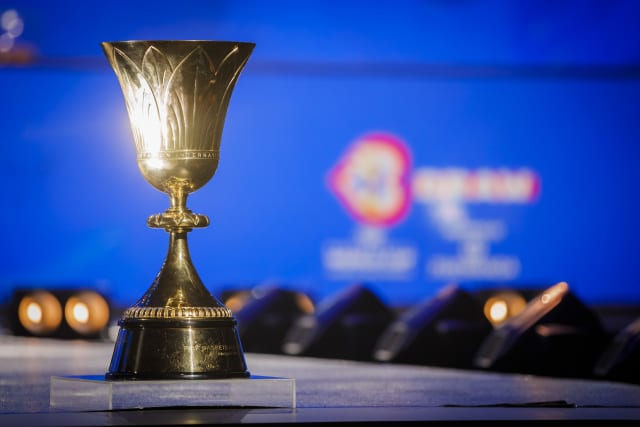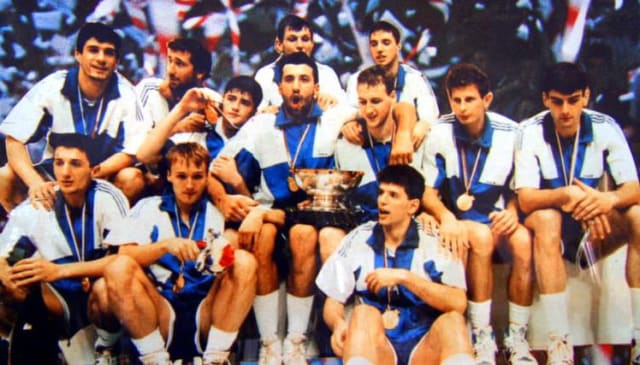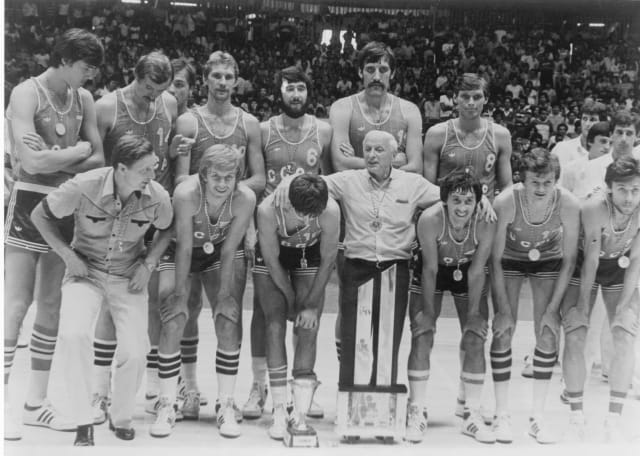Can you win the World Cup if you didn't win your group?
MANILA (Philippines) - Track record offers a short answer: Yes. Medium answer: Yes, but it happened just three times in 18 World Cups so far. Long answer: Yes, but those countries don't exist anymore.
MANILA (Philippines) - Can you win the FIBA Basketball World Cup if you've not topped your group?
The historic track record offers us some answers.
A short one: Yes.
A medium answer: Yes, but it happened just three times in 18 World Cups so far.
A long answer: Yes, but none of those countries exist anymore as such.

There have been numerous format changes since the first edition of the FIBA Basketball World Cup back in 1950. However, the last four champions had one thing in common: their perfect records. The United States had a perfect tournament in 2010 and 2014, while Spain swept their opposition in 2006 and 2019.
Therefore, we know they also won their groups, and had higher seeds in the latter stages of the competition, making for an easier draw. Even though coaches and players will always tell you there are no easier games, there obviously is a rewarding path to winning your initial group.
For the first-time in FIBA Men’s Basketball World Cup history, Canada finishes first-place in Group Phase.
— Canada Basketball (@CanBball) August 29, 2023
This team is making history in Jakarta. #FIBAWC | #WinForCanada | #OneTeam pic.twitter.com/ohm97YSNzP
The current format, introduced in 2019, deserves an additional look, because of all the Quarter-Finals teams, only Czech Republic weren't group winners in the First Round.
Czech Republic finished second, behind the USA in Group E, then carried over their 2-1 record to the Second Round, and after a win and a loss there, they finished ahead of Brazil and Greece in a three-way tie to reach the Quarter-Finals.
The remaining seven teams were all group winners in the First Round.
FR Yugoslavia in 2002
Historically, there have been cases of teams not winning their initial groups and still reaching the throne. In 2002, FR Yugoslavia lost their second game of the event and finished second to Spain in Group A.
They were even lower in the Second Round, claiming third spot behind Puerto Rico and Spain, but then managed to upset hosts USA in the Quarter-Finals, and defeated New Zealand and Argentina to win the World Cup.
Their coach back then? Svetislav Pesic, the same playcaller who's at the helm of the Serbian national team currently.
Yugoslavia in 1990
Another case of not winning the group, but winning the World Cup happened with the former Yugoslavia back in 1990. Puerto Rico stunned Drazen Petrovic, Toni Kukoc, Zarko Paspalj, Vlade Divac and others in Argentina, taking the first seed in Group A, pushing Yugoslavia to second spot.

However, Yugoslavia bounced back to finish top of their Second Round group, in front of the Soviet Union, Greece and Brazil, before defeating the United States in the Semi-Finals, and taking down the Soviet Union once again in the championship game.
Soviet Union in 1982
The format of the competition in 1982 was composed of two rounds plus a Final. Although the Soviet Union cruised to a 3-0 record in Group B with a +95 points difference, they stumbled upon the United States in the Second Round.
USA won that game 99-93 in Cali, Colombia, but in a seven-team Round Robin group, those two squads finished one and two, meaning they both advanced to the title game.

Led by Vladimir Tkachenko and Anatoli Myshkin, USSR held on as Glenn Rivers, also known as Doc, missed a potential game-winning midrange shot at the buzzer. It finished 95-94, which was Soviet Union's last FIBA Basketball World Cup gold medal.
FIBA